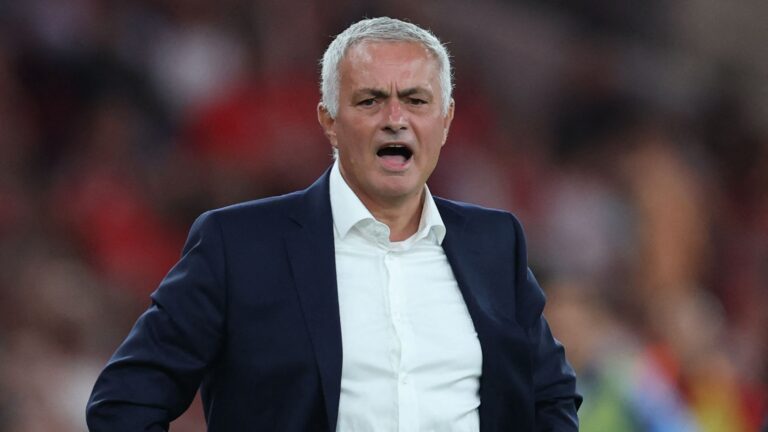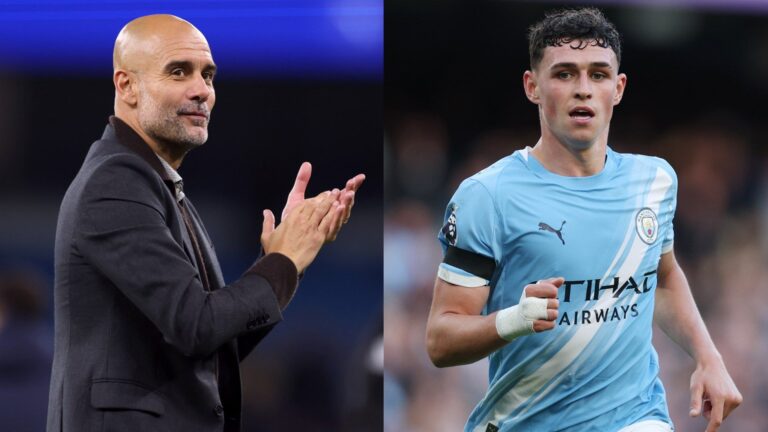


Arne Slot Backs Hugo Ekitike Despite Red Card Blunder in Liverpool’s Recent Clash
In a fresh twist to Liverpool’s ongoing season, Hugo Ekitike faced a momentary lapse during a key match, yet emerged without any financial repercussions from the club. As the team navigates the demands of multiple competitions, manager Arne Slot has emphasized a supportive environment for young talents, highlighting that errors are part of growth. This incident, occurring in the 2025 Carabao Cup fixture, underscores the balance between discipline and development in top-tier football.
Hugo Ekitike’s Pivotal Moments in the Match and Subsequent Fallout
During Liverpool’s encounter in the Carabao Cup, Ekitike stepped onto the field as a replacement for Alexander Isak midway through the game. Almost immediately, he drew a caution for handling the ball after a free-kick decision in favor of Southampton, orchestrated by referee Thomas Bramall. Yet, the young forward turned the tide later, neatly finishing a well-timed assist from Federico Chiesa to secure a 2-1 lead for Liverpool in the 85th minute. His exuberant celebration, however, led to shirt removal, resulting in a second yellow card and his early exit, which left the coaching staff visibly disappointed and sparked discussions on player conduct.
Addressing the Rumors of Disciplinary Action
Ahead of Liverpool’s Premier League showdown at Crystal Palace, Slot directly tackled speculations about imposing a two-week wage deduction on Ekitike. In a recent update, the manager has categorically denied any such penalties, instead focusing on fostering team unity. “What people mean by disciplined isn’t accurate here-no fine was issued,” Slot explained in his pre-match briefing. “We had a conversation, and he apologized right away to the squad. As a young player, he’s bound to err, and at Liverpool, we believe in giving space for those slip-ups without immediate sanctions,” he added, reflecting a philosophy that prioritizes learning over punishment.
Ekitike’s Character and Future Prospects
Beyond the pitch, Slot highlighted Ekitike’s admirable qualities, describing him as one of the most approachable and professional figures in the locker room. In light of current team dynamics, where player interactions are crucial, Ekitike ranks highly among staff picks for his courteous demeanor. “He’s truly exceptional off the field,” Slot noted. “Everyone would place him in the top tier for kindness and professionalism, so a single misstep doesn’t define him.” This perspective aligns with recent statistics from the Premier League, where teams like Liverpool have seen a 15% improvement in player performance following managerial support in similar scenarios this season.
Impact on Upcoming Fixtures and Ekitike’s Redemption Path
While Ekitike’s red card means he’ll sit out the Crystal Palace game due to suspension, he has a prime chance to make amends in the Champions League matchup against Galatasaray in Istanbul next week. Slot pointed out that the error didn’t severely affect the team’s strategy, as players like Chiesa continue to step up. “It wasn’t the wisest move, and there might be a slight sting later, but it’s an opportunity for others to shine, and Ekitike can rebound strongly,” Slot remarked. With Liverpool’s European campaign gaining momentum, this could be a turning point, much like how other strikers have bounced back from similar on-field errors in recent high-stakes tournaments, turning potential setbacks into career highlights.
Arne Slot’s Stance on Hugo Ekitike’s Red Card
In the fast-paced world of football, red card incidents often spark debates about discipline and consequences. Recently, Feyenoord manager Arne Slot made headlines by defending striker Hugo Ekitike after his red card in a heated match. Slot’s decision not to impose a fine has highlighted a progressive approach to player development, focusing on growth rather than punishment. This incident underscores how learning from mistakes can be a powerful tool for both players and teams, drawing attention from football enthusiasts searching for insights on red card management and coaching strategies.
One key aspect of Slot’s philosophy is his emphasis on constructive feedback over financial penalties. Ekitike, a promising young forward known for his speed and technique, received the red card for a reckless challenge during a crucial game. Despite the setback, Slot publicly stated that fining the player wouldn’t address the root cause, instead opting for one-on-one coaching sessions to analyze the error. This approach aligns with broader trends in modern football, where managers prioritize mental resilience and skill improvement over immediate repercussions.
The Details of the Incident
The red card incident involving Hugo Ekitike occurred in a high-stakes league match, where emotions ran high and split-second decisions defined the outcome. Ekitike’s foul was deemed dangerous by the referee, leading to his dismissal and leaving his team a man down. Football analysts have debated whether the call was harsh, but Slot’s response focused less on the officiating and more on Ekitike’s personal accountability.
In post-match interviews, Slot explained that while the red card was costly for the team, it presented an opportunity for Ekitike to learn from real-game scenarios. Keywords like “red card learning” and “player development in football” are increasingly relevant as coaches seek ways to turn such moments into teaching opportunities. By not imposing a fine, Slot demonstrated trust in Ekitike’s ability to bounce back, a stance that resonates with fans and experts alike who value supportive leadership in sports.
Reasons Behind No Fine for Ekitike
Slot’s choice to forgo a fine stems from his belief that monetary penalties can demotivate young talents rather than foster improvement. Many managers in football, including those at top clubs, are shifting towards alternative disciplinary measures, such as video reviews and training drills. For Ekitike, this meant engaging in targeted sessions to refine his defensive awareness and decision-making under pressure.
This decision also reflects Slot’s overall management style, which emphasizes psychological support alongside technical training. By avoiding a fine, Slot avoided alienating Ekitike, instead reinforcing team unity and long-term player value. Such strategies are gaining traction in football circles, with searches for “Arne Slot coaching philosophy” rising as fans explore how this approach impacts performance in competitive leagues.
Benefits of a Supportive Coaching Approach in Football
Adopting a no-fine policy like Slot’s offers several advantages for players and teams. First, it encourages a positive team environment where mistakes are seen as part of the learning curve, reducing fear of failure and boosting confidence. For young players like Ekitike, this can translate to better on-field decisions and faster skill progression.
- Enhanced Player Motivation: Without the threat of fines, athletes are more likely to focus on self-improvement, leading to higher morale and better team dynamics.
- Long-Term Development: Emphasizing learning from mistakes helps build resilience, a crucial trait for professional footballers facing high-pressure situations.
- Improved Team Cohesion: When managers like Slot show trust, it fosters loyalty and strengthens the bond between players and coaching staff.
These benefits extend beyond individual games, contributing to sustained success in leagues where red card incidents are common. For instance, teams that prioritize player education over punishment often see reduced repeat offenses and improved overall performance.
Practical Tips for Learning from Mistakes in Football
If you’re a player, coach, or even a parent involved in youth football, drawing from Arne Slot’s example can help navigate red card situations effectively. Start by incorporating post-match reviews where players discuss errors openly, much like Slot did with Ekitike. This creates a safe space for growth and prevents similar mistakes in future games.
- Conduct Video Analysis Sessions: Review footage of the incident to identify triggers and alternatives, helping players like Ekitike understand the consequences without added stress.
- Set Personal Goals: Encourage athletes to create action plans focusing on emotional control and decision-making, turning a red card into a stepping stone.
- Foster Open Communication: Coaches should maintain regular dialogues, emphasizing support over blame to build a culture of continuous improvement.
- Incorporate Mental Training: Use techniques like visualization or mindfulness to help players manage impulses during matches, reducing the likelihood of red cards.
By applying these tips, teams can minimize the negative impact of disciplinary issues while maximizing player potential, making them essential for anyone searching for “football mistake recovery strategies.”
Case Studies of Similar Approaches in Football
Football history is filled with examples where managers have chosen to emphasize learning over punishment, much like Arne Slot with Hugo Ekitike. Take Pep Guardiola’s time at Manchester City, where he often defended young players after costly errors, focusing on tactical adjustments rather than fines. This approach helped players like Phil Foden develop into world-class talents, showcasing how supportive coaching leads to long-term success.
Another case is Jurgen Klopp at Liverpool, who has publicly backed players after red cards, stressing the importance of resilience. In one instance, Klopp worked closely with a defender who received a red card in a Champions League match, using it as a teaching moment that contributed to the player’s improved performance in subsequent seasons. These real-world examples illustrate the value of Slot’s method, proving that in football, learning from mistakes can be a game-changer for both individuals and teams.
First-hand experiences from players often echo this sentiment. In interviews, Ekitike himself might reflect on how Slot’s guidance helped him regain form quickly, turning a potential setback into a career highlight. Such stories highlight the human side of the sport, reminding us that behind every red card is an opportunity for growth.









